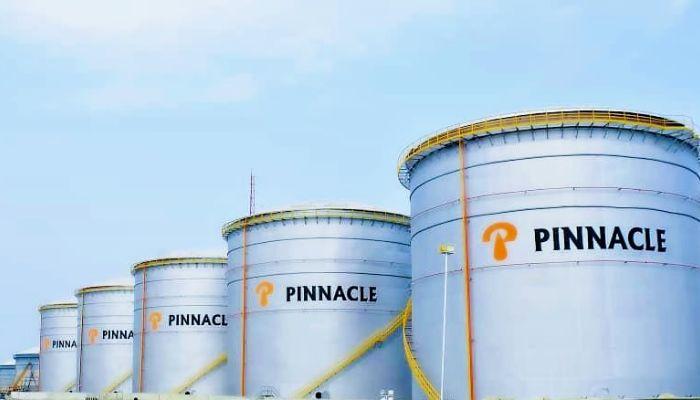…clarifies pipeline deal with Dangote
Pinnacle Oil and Gas Limited has reiterated its unwavering commitment to providing high-quality petroleum products to Nigerian consumers.
On November 5, 2024, Dangote issued a press release titled “Pinnacle Oil and Gas FZE: Our Stand,” stating that the company ‘deceitfully’ approached it and pleaded that it extend its pipeline from the refinery to its tank farms to blend its ‘high-quality’ products with imported products and sell them to Nigerians.
However, in a statement, Pinnacle highlighted that its Lekki Free Zone terminal, launched in 2021, was designed to streamline Nigeria’s petroleum product distribution by allowing direct, full-capacity offloading from larger vessels.
This new capability eliminates the need for costly ship-to-ship transfers that were once necessary due to draft restrictions at other Nigerian ports, which increased shipping and delivery expenses.
“With our terminal, full cargoes can be offloaded within 40 hours, reducing wait times and eliminating transfer-related costs,” Pinnacle noted, emphasising that these efficiencies have benefited the country since operations began.
In an effort to further optimise distribution, Pinnacle stated it had proposed and funded pipeline connections from the Dangote Refinery. These pipelines aim to reduce reliance on trucking and shipping, offering a more cost-effective solution for nationwide distribution.
Pinnacle reported that Dangote had agreed to the plan, signing a 13-year interconnection agreement and issuing regulatory approvals to support the project.
Read also: Deregulation not licence for off-spec petrol importation, Dangote tells Pinnacle
“When we proposed this project to Dangote, they wholeheartedly agreed and signed a 13-year interconnection agreement with us. In addition, Dangote facilitated our process of achieving regulatory approval by writing two Letters of No Objection to the regulator to enable our project to proceed,” Pinnacle stated.
Pinnacle also underscored its commitment to a market-based approach to Nigeria’s fuel supply, arguing that competition among local refineries, imports, and other sources would help secure energy access and lower consumer prices.
According to Pinnacle, “An optimal solution for Nigeria’s energy needs includes all sources of supply, provided they meet safety and quality standards. This allows consumers to benefit from competitive, market-driven prices.”
The company added that Nigeria’s distribution network includes thousands of jobs across ports, terminals, and retail stations and cautioned against a single-source distribution model, warning it could risk supply disruptions and price volatility.
Pinnacle advised the Dangote Refinery to leverage the existing distribution network, which, they believe, is effective with current infrastructure.
Pinnacle reiterated that imported fuels meet stringent quality standards and that regulatory oversight ensures no substandard products reach consumers.
“Our previous release made clear that imports do not equate to substandard or off-spec products, and there is no reason to believe that products refined in other countries would be of any lower quality than those refined here. Again, the regulator and all market participants work in tandem to ensure that no substandard product is ever delivered to customers,” it added.
Additionally, the company expressed optimism about the Dangote Refinery’s future success, predicting that healthy competition would boost Nigeria’s reputation as a trading hub and attract further investments in refining and distribution infrastructure.
